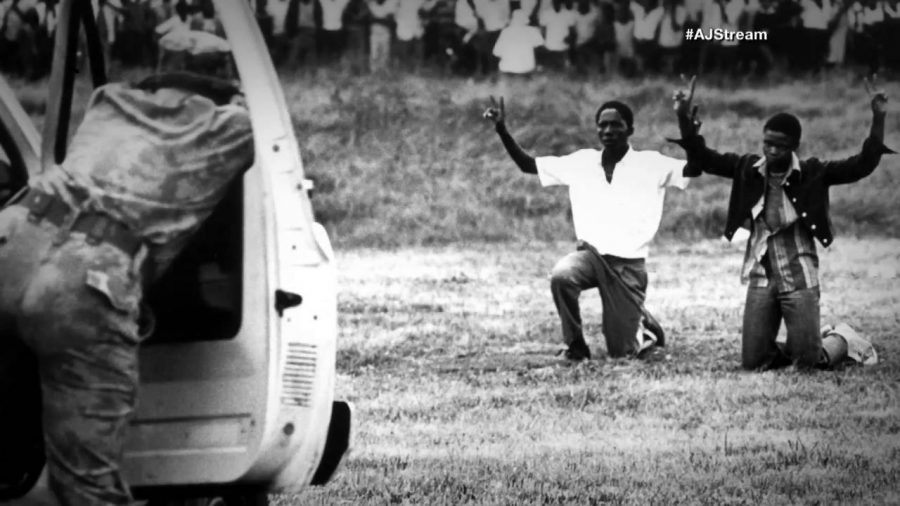
WATCH #SowetoUprising: 40 Years On
This week South Africa marks the 40 year anniversary since the Soweto student uprising, which was a turning point for the country’s anti-apartheid struggle. Thousands of black students took to the streets after a government decree forced all black schools to use Afrikaans alongside English as languages of instruction. They resented the decree as Afrikaans was viewed […]

This week South Africa marks the 40 year anniversary since the Soweto student uprising, which was a turning point for the country’s anti-apartheid struggle.
Thousands of black students took to the streets after a government decree forced all black schools to use Afrikaans alongside English as languages of instruction. They resented the decree as Afrikaans was viewed as “the language of the oppressor”.
The demonstrations against this institutional racism turned deadly on June 16, 1976, after police used teargas and opened fire on peaceful protesters, sparking further unrest.
It is estimated at least 170 people were killed and more than a thousand injured.The crackdown made international headlines, shocking people with the reality of South Africa’s structural racism and inequality.
To commemorate the occasion, Al Jazeera’s ‘The Stream’ broadcast a fascinating discussion last night about where those students and South Africa are now, 40 years later. The show covers the role of women in the protest, the government’s intolerance of protest culture and the ongoing challenge of access to quality, decolonised education in South Africa.
In 1994, the government dismantled apartheid, but some say today’s “born free” generation is still facing similar grievances from the past, as evidenced by recent student protests.
“Youth moving South Africa forward” is this year’s theme marking the anniversary.
The programme asks, four decades on, how much has life changed for young South Africans since the Soweto uprising? And how has it impacted youth activism in the country today?
